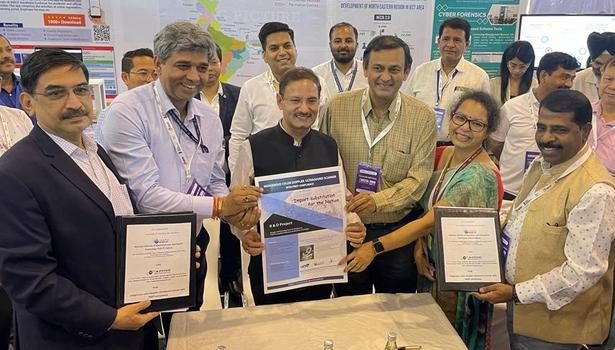NIELIT Calicut signs pact for commercialisation of indigenous colour doppler ultrasound technology
The first-of-its-kind equipment to be manufactured under Centre’s Make in India programme
The first-of-its-kind equipment to be manufactured under Centre’s Make in India programme
The National Institute of Electronics and Information Technology (NIELIT), Calicut, signed a Transfer of Technology (ToT) agreement with a leading electronic firm for commercialisation of indigenous technology.
The indigenous colour doppler ultrasound scanner, loaded with unique features, is the first-of-its-kind equipment to be manufactured under the Centre’s Make in India initiative. The project was the result of a funded research and development initiative of the Ministry of Electronics and Information Technology (MeitY).
According to the research team, the ToT pact was signed between M.P. Pillai, Executive Director, NIELIT, Calicut, and V. Loknath, director of Jupiter Design Technologies (JDT), Bengaluru, in Gandhinagar, Gujarat, on July 5. Alkesh Kumar Sharma, Secretary, MietY, and Madan Mohan Tripathi, Director-General, NIELIT, were present. The event was held as part of the Digital India Week 2022 opened by Prime Minister Narendra Modi on July 4.
Researchers said the idea to design a prototype with unique features was conceptualised in 2015 to facilitate import substitution. The finding that the country’s import of ultrasound scanners was worth approximately $21 million, and that it even grew by 15% every year was also a stimulus to researchers for developing a native technology at an affordable cost, they added.
The NIELIT team explained that the product was designed in compliance with the Pre-Conception and Pre-Natal Diagnostic Techniques (PCPNDT) Act, 1994 with options to track rule violators. “Moreover, the machine feeds Indian samples and enables an accurate estimation of foetus statistics like weight and size,” the team informed.
In a communication, Mr. Pillai said the technology developed for commercial production was a step forward in accomplishing the vision of Make in India. He pointed out that the machine had unique features like Aadhaar-based identification.
Jayaraj U. Kidav, principal investigator of the project, observed that inventions like the high-end indigenous ultrasound scanner would enable the country to have full control over the modern medical ultrasound imaging technology sector. He noted that it would reduce the overdependence on foreign technologies.








Gloss